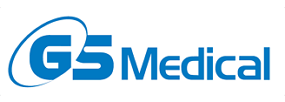| Radiofrequency Partial Dorsal Root Ganglionotomy For Persistent Low Back and Leg Pain Following Lumbar Surgery |
|
Jung-Yul Park, M.D., Sang-Dae Kim, M.D., Se-Hoon Kim, M.D., Dong-Joon Lim, M.D. and Jung-Keun Suh, M.D. |
|
Department of Neurosurgery, Korea University, College of Medicine, Seoul, Korea |
| Radiofrequency Partial Dorsal Root Ganglionotomy For Persistent Low Back and Leg Pain Following Lumbar Surgery |
|
Jung-Yul Park, M.D., Sang-Dae Kim, M.D., Se-Hoon Kim, M.D., Dong-Joon Lim, M.D. and Jung-Keun Suh, M.D. |
|
Department of Neurosurgery, Korea University, College of Medicine, Seoul, Korea |
|
|
|
|
| Abstract |
Objective
The effect of percutaneous partial radiofrequency(PRF) lesioning on dorsal root ganglion was studied in patients with persistent back and leg pain after surgery to validate its role in management of such patients.
Materials & Methods: A total of 90 patients with persistent back and leg pain(52 males, 38 females, mean age 46.2 years) for more than 6 months of duration following lumbar surgeries were enrolled into study. These patients were reevaluated to make sure they did not have ongoing compressive lesions that were clearly indicated for conventional surgery. Also, patients with postoperative infection, bleeding tendency, and uncontrolled hypertension were also excluded. PRF procedures, the partial dorsal root ganglion lesioning, were percutaneously done under local anesthesia with C-arm guidance and adjustments from physiologic monitorings(e.g., impedance, sensory and motor responses). Assessments included the clinical symptoms, signs and changes of thermographic pattern before and after PRF procedure. Various clinical variables such as age, sex, bilaterality, duration of symptoms, number of previous operations, types of pathology, and types of operations were also studied to determine the prognostic factors. Minimal follow up period was 6 months.
Results
All patients tolerated the RF procedures well. PRF procedure provided substantial improvement of pain(>50% pain reduction) in 46(76.7%) and 42(70%) at 1 and 6 months following procedures. Thermographic findings before procedures were agreeable to clinical and radiographic findings in 54(90%) of patients, and in 49(81.7%) of patients, they seemed to correlate with clinical improvements. However, 11 patients(18.3%) showed no significant thermographic changes despite clinical improvement. Clinical factors that were statistically significant(p<0.05) for good outcome(>50% of pain relief at 6 month post- treatment) were unilateral pain, less number of operations, and no instrumentation. There were no complications from procedures.
Conclusion
These results indicate that PRF lesioning on dorsal root ganglion seems to be effective, at least for 6 month period, in majority of patients who continuously experience even after surgeries. Thus, it is considered a useful armamentarium in management failed back patients with persistent back and leg pain. As for the thermography, it may have a role in evaluating in these patients, especially for comparing the clinical status before and after treatment.
|
| Keywords:
Dorsal root ganglion, Radiofrequency, Failed Back Surgery Syndrome, Thermography, Prognosis |
|



 PDF Links
PDF Links
 Full text via DOI
Full text via DOI
 Download Citation
Download Citation








































